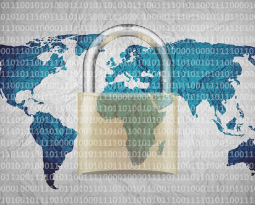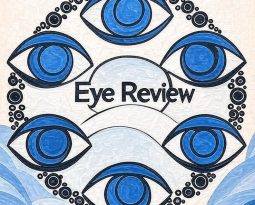Nebraska Patent of the Month – October 2024
Elemental Scientific has unveiled a groundbreaking method to analyze ultra-low concentration nanoparticles in semiconductor cleaning chemicals, addressing a critical need in advanced manufacturing. Utilizing single particle inductively coupled plasma mass spectrometry (spICP-MS), the innovation significantly enhances the precision of nanoparticle detection and characterization within complex chemical matrices.
This novel method employs advanced algorithms to isolate and analyze ion signals from nanoparticles while eliminating background noise. Through iterative data filtering, a baseline intensity value is established, enabling accurate differentiation between ionic and particulate signals. The system then generates detailed histograms to determine nanoparticle detection thresholds, customized for various chemical matrices and analytes. These thresholds ensure reliable identification and quantification of nanoparticles, even at the smallest detectable sizes.
A major leap lies in the method’s adaptability. It accommodates diverse operational modes and analytes, including critical elements like silicon and gold, with detection capabilities reaching particle sizes as small as 5 nm. Moreover, it offers real-time monitoring of contamination trends, empowering proactive responses to potential metallic intrusions in semiconductor processes.
The spICP-MS system also optimizes efficiency, analyzing samples in durations as brief as three minutes or extended sessions for aggregated datasets. With capabilities for detailed characterization—including concentration, elemental composition, and size distribution—this invention promises transformative impacts on semiconductor quality assurance.
By providing unparalleled sensitivity and accuracy, Elemental Scientific’s innovation sets a new benchmark in the analysis of ultra-low level nanoparticles, fortifying the technological backbone of semiconductor manufacturing and fostering advancements in nanoscale purity standards.
Are you developing new technology for an existing application? Did you know your development work could be eligible for the R&D Tax Credit and you can receive up to 14% back on your expenses? Even if your development isn’t successful your work may still qualify for R&D credits (i.e. you don’t need to have a patent to qualify). To find out more, please contact a Swanson Reed R&D Specialist today or check out our free online eligibility test.
Who We Are:
Swanson Reed is one of the U.S.’ largest Specialist R&D tax advisory firms. We manage all facets of the R&D tax credit program, from claim preparation and audit compliance to claim disputes.
Swanson Reed regularly hosts free webinars and provides free IRS CE and CPE credits for CPAs. For more information please visit us at www.swansonreed.com/webinars or contact your usual Swanson Reed representative.
What is the R&D Tax Credit?
The Research & Experimentation Tax Credit (or R&D Tax Credit), is a general business tax credit under Internal Revenue Code section 41 for companies that incur research and development (R&D) costs in the United States. The credits are a tax incentive for performing qualified research in the United States, resulting in a credit to a tax return. For the first three years of R&D claims, 6% of the total qualified research expenses (QRE) form the gross credit. In the 4th year of claims and beyond, a base amount is calculated, and an adjusted expense line is multiplied times 14%. Click here to learn more.
R&D Tax Credit Preparation Services
Swanson Reed is one of the only companies in the United States to exclusively focus on R&D tax credit preparation. Swanson Reed provides state and federal R&D tax credit preparation and audit services to all 50 states.
If you have any questions or need further assistance, please call or email our CEO, Damian Smyth on (800) 986-4725.
Feel free to book a quick teleconference with one of our national R&D tax credit specialists at a time that is convenient for you.
R&D Tax Credit Audit Advisory Services
creditARMOR is a sophisticated R&D tax credit insurance and AI-driven risk management platform. It mitigates audit exposure by covering defense expenses, including CPA, tax attorney, and specialist consultant fees—delivering robust, compliant support for R&D credit claims. Click here for more information about R&D tax credit management and implementation.
Our Fees
Swanson Reed offers R&D tax credit preparation and audit services at our hourly rates of between $195 – $395 per hour. We are also able offer fixed fees and success fees in special circumstances. Learn more at https://www.swansonreed.com/about-us/research-tax-credit-consulting/our-fees/
Choose your state


















